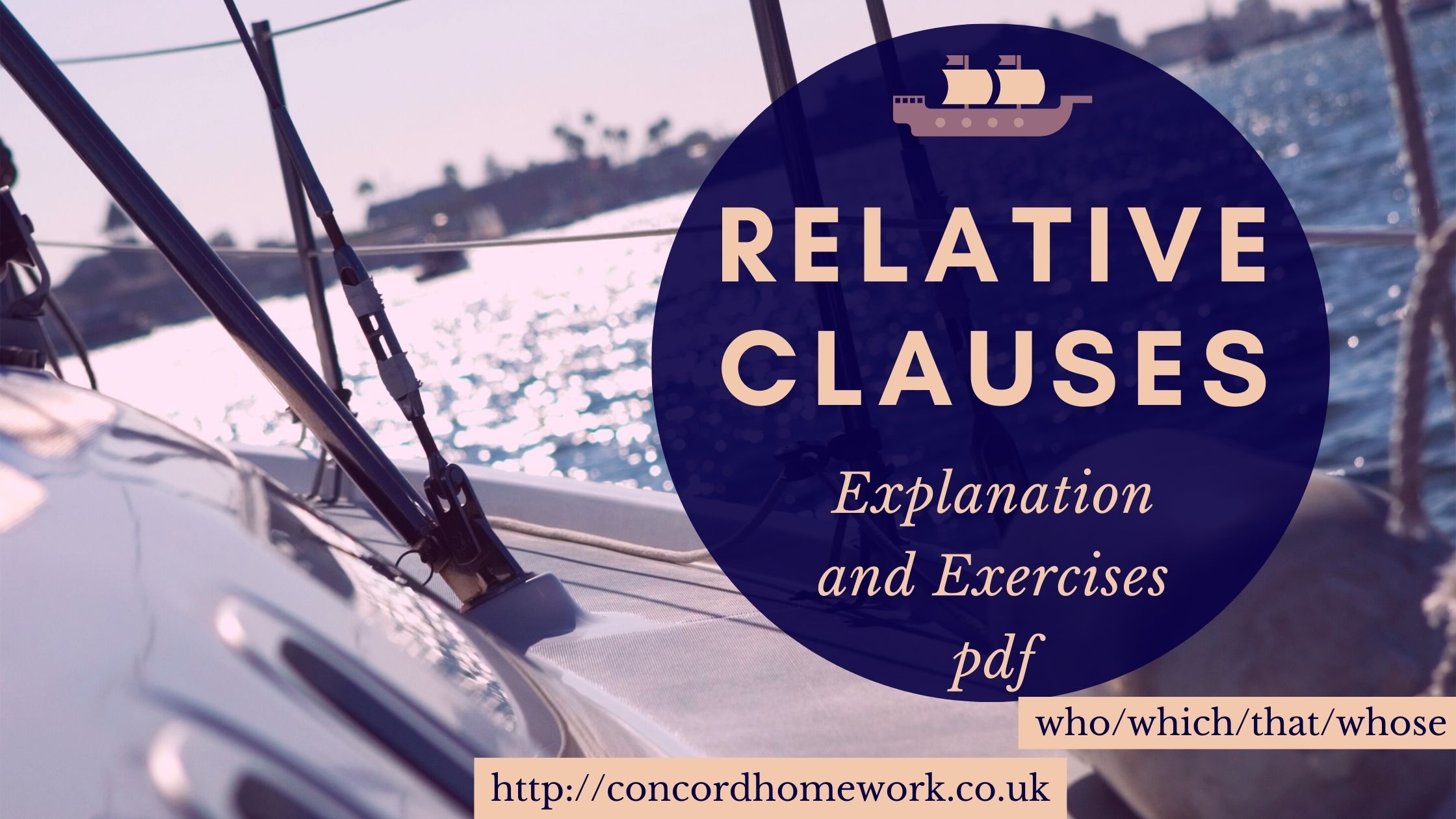Relative clauses
Defining relative clauses with who, which, that, or whose
Use:
A We can use defining relative clauses to identify which people we are talking about. This can help to avoid confusion, especially in conversation:
I met Jenny Philips this morning. ~ Who’s she? ~ She’s the woman who came to the meeting with Jeff. She’s the one that I spoke to in the seminar room.
B We use defining relative clauses to identify which thing we are talking about. These might be the particular things we need to complete a task:
Can you bring me a hammer? ~ Which one? ~ The one
that I bought yesterday. ~ OK. Where is it? ~ It’s in a box that’s lying on the garage table.
1 If we use a sentence like:
Example: My teacher was very helpful.
It may not be clear which teacher. We can make it clear like this:
The teacher who/that taught me English was very helpful.
Who is a relative pronoun and links the relative clause (who taught me) to the main clause (My teacher was very helpful).
The relative clause answers the question ‘Which person/thing?’. We call this a defining relative clause and we do not use commas (,):
The teacher was very helpful. ~ Which teacher? ~ The teacher who/that taught me English.
2 We use who or that to refer to people:
I thanked the man who/that helped me.
and which or that to refer to things:
That’s the medicine which/that heals people.
3 Who, which or that can be the subject of the relative clause:
Subject
The athlete who won was very happy.
The athlete won.
That’s the robot that talks.
The robot talks.
4 Who, which or that can be the object of the relative clause:
Object
The man who I helped was very thankful.
I helped the man.
They sold the house that she wanted.
She wanted the house.
Note
Something you should know about “Whom”!
In formal English
In formal English, we can also use “whom” instead of “who“, when it is the object of the relative clause:
The man whom I helped was very thankful.
5 When Who, which or that is the object, we can leave it out:
*The man I helped was very thankful.
*They sold the house she wanted.
6 We use whose in place of the possessive adjectives his, her, their, etc.:
They interviewed a man whose wife had disappeared. (= His wife had disappeared.)
That’s the girl whose photo was in the paper.
(= Her photo was in the paper.)
We only use whose with people, countries and organizations, not things or ideas.
7 Where refers to a place.
We went to a campsite where we stayed ten years ago.
(We went to a campsite. We stayed there ten years ago.)
8 We use when to refer to a time.
Is there a time (when) we can talk about this?
I’ll never forget the day (when) I met you.
I remember the holiday when we went to Greece
* We can omit when after words which refer to time – the time, the day, the week, etc.
Download “Defining Relative Clauses Explanations” in PDF.
Download the “Defining Relative Clauses Exercise” in PDF.
“Thank you for taking the time to explore this topic with us! We hope you found the information helpful and insightful. Have any thoughts, questions, or additional examples to share? We’d love to hear from you in the comments below!
Don’t forget to spread the word by sharing this blog with your friends, family, and colleagues. Together, let’s continue to learn, grow, and connect with the world around us. Happy reading and sharing!”




















